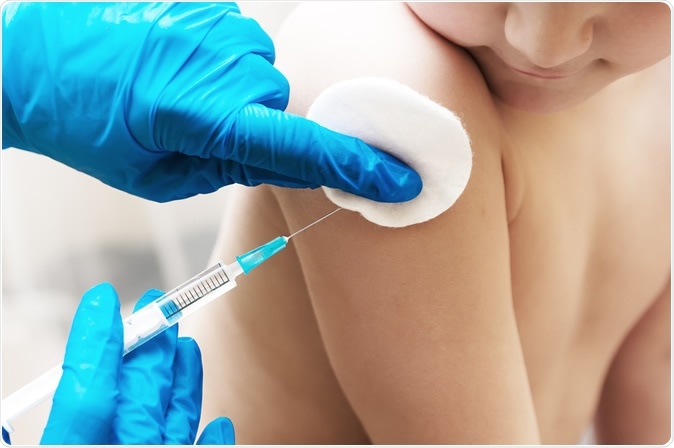With the advent of the coronavirus outbreak and other viral outbreaks that are taking the lives of many people worldwide, vaccination is more important today than ever. But, recently, immunization rates have drastically decreased due to information people receive through social media platforms.
A new study has found that in a survey of 2,500 people in the United States, those who rely on traditional media for information are less likely to be misinformed about vaccines than social media users. The results of the study, published in the Harvard Kennedy School Misinformation Review, shows that a person's trust in medical experts may affect the likelihood of changing beliefs related to vaccination.
The researchers from Annenberg Public Policy Center of the University of Pennsylvania performed the survey in the summer and fall of 2019, a period when the U.S. experienced its largest measles outbreak in 25 years. Between the two survey periods, about 19 percent of the respondents had misinformation about vaccines, and of them, 64 percent were more misinformed in the fall than in the spring.

Image Credit: Stanislave / Shutterstock
Social media influence
The world of social media has influenced people in all sorts of facets – lifestyle, political views, and even medical knowledge. In the study, the team found that media consumption patterns impacted the change in misinformation levels. Those who had increased exposure to information about measles and the MMR (measles, mumps, and rubella) vaccine on social media were more likely to be misinformed about vaccines, compared to those who rely on news accounts in traditional media, such as newspapers, news websites, and televised news programs.
"People who received their information from traditional media were less likely to endorse anti-common vaccination claims," Dominik Stecula, a postdoctoral fellow in the science of science communication program at the Annenberg Public Policy Center (APPC) and study co-author, said.
The result of the study is consistent with past research that suggests that social media contain misinformation about vaccination, since they're not verified, and some information posted is untrue. On the other hand, traditional media tends to reflect verified information, including the scientific consensus on the benefits and safety of vaccines.
Alarming results
Further, the team found disturbing findings from the surveys. For instance, about 18 percent of the participants said that it's very or somewhat accurate that vaccines may cause autism, while 15 percent agreed that vaccines contain lots of toxins.
Approximately 20 percent of wrongly reports that it makes no difference whether parents choose to delay or spread out vaccines instead of following a strict immunization schedule imposed by the Centers for Disease Control and Prevention (CDC). Also, 19 percent said it is accurate to state that it's better to develop immunity against the disease by becoming ill with the pathogen.
Trust in medical officials or authorities may also influence a person's perception of vaccines. For instance, the people who reported low trust were the same ones who believed about the misinformation on vaccination.
Lastly, the respondents who said they learned about measles and the MMR vaccine via social media networks were more likely to be misinformed than those who said they got the information from traditional media.
"This conclusion is consistent with research suggesting that social media contain a fair amount of misinformation about vaccination, while traditional media are more likely to reflect the scientific consensus on its benefits and safety. Future research should focus on determining whether these associations are causal," the researchers wrote.
What is measles?
Measles is a highly contagious viral disease, caused by a single-stranded, enveloped RNA virus with one serotype. Humans are the only natural hosts of the measles virus, and it causes acute respiratory illness. The common signs and symptoms of the infection include a prodrome of fever and body pain. After, the patient may experience cough, coryza (runny nose), and conjunctivitis.
Another distinct sign of measle is a pathognomonic sign called Koplic spots and rash that appears two weeks after being exposed to the virus. The rash begins as flat red spots that appear on the face, particularly at the hairline, and spread downward to the neck, trunk, arms, and legs.
Source:
U.S. Centers for Disease Control and Prevention (CDC). (2018). Measles (Rubeola). https://www.cdc.gov/measles/hcp/index.html
Journal reference:
Stecula, D.A., Kuru, O., and Jamieson, K.H., (2020). How trust in experts and media use affect acceptance of common anti-vaccination claims. Harvard Kennedy School Misinformation Review. https://misinforeview.hks.harvard.edu/article/users-of-social-media-more-likely-to-be-misinformed-about-vaccines/